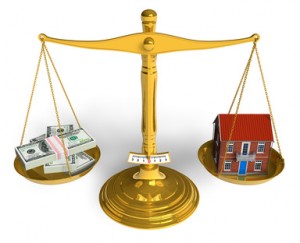Three forms of renewable energy (the most common) are solar, wind and hydro. Less-known are tidal (sea waves), geothermal (natural heat), biomass (decomposed matter), fuel cell (hydrogen and oxygen) and nuclear energy.
We continue here with a look at wind power for home use, along with sources for further research and information.
Why is wind power important?
Simply put, it's good for your pocketbook
and for the environment. At a time when saving money is on top of everyone's mind, regardless of an individual's financial health, opportunities to reduce the cost of basic expenses such as utilities are worth considering. And just as wind is a renewable resource, the savings on wind power are sustainable for the life of your home.
Natural gas power vs. wind power
From a short-term cost perspective, natural gas power, currently at a low price, is the better deal. However, even after considering the expense of installation, a wind power system is the most cost-effective way to go, thanks to a 30 percent tax credit for systems in service before December 31, 2016.
Environmentally speaking, although natural gas is among the cleanest of the fossil fuels, it still releases pollutants. Wind power systems do not, once the manufacturing and installation processes are complete.
In terms of reliability, natural gas power comes out on top. It's readily available, whereas wind can be intermittent. This takes us to a look at the most ideal circumstances for wind systems to be most effective.
A flat, open expanse makes for the best situation in harnessing wind energy, as tall buildings and close, surrounding homes break wind patterns. In this situation, you have the option of going completely off the grid. In a more developed area, it's not practical to expect there will be enough wind to run all your energy needs.
Want to see if you live in a region that has powerful winds? Find high-resolution wind maps and estimates of wind resource potential at
Wind Powering America.
How does a wind energy system work?
The most common home system involves the use of turbines, which convert the kinetic energy into mechanical power. (Wind turbines/windmills are among the oldest forms of renewable energy, dating back to medieval times!) The kind of turbine you'll need depends on where you live and how much you plan to use wind as your source for energy.
If you live in a remote area where wind is easy to come by (and height restrictions are less stringent), you have a choice of a rooftop turbine or one that sits on the ground and towers over your home. The latter can go as high as 120 feet!
As noted, living in a developed area isn't conducive to using wind for all your power needs so a small rooftop turbine should be enough to generate the most feasible amount of energy in that environment.
Learn more about
small wind systems for your home through the U.S. Department of Energy's FAQs.
Where can I find home energy kits?
Save money at the start by doing it yourself! A quick search on the Internet yields a long list of sources for wind energy systems, so finding one will be easy enough. The key to finding the right one is doing some thoughtful research. Whether you make and install your own system or have it done for you, refer to the
American Wind Energy Association for some helpful tips first.
In general, alternative home energy installation is the wave of the future. In fact, already there are those who would prefer the word “alternative” no longer be used as “renewable energy” becomes more mainstream.
Converting to renewable energy in an existing home is a major commitment. Be prepared to spend a lot of time on research, looking at the history of your energy use and predicting what it will be in the future. A growing family will gradually need more while empty-nesters may begin to use less. Saving money and “doing good” can only be positive things, but you'll have to decide if all the work is worth it. We close with some general comments for your consideration.
Is renewable energy for me?
If you're thinking about transitioning from fossil fuels for your energy needs, whether for financial or environmental reasons, the same considerations apply.
How much do you intend to use it? Where will you put it? (A wind or water turbine is more cumbersome than the nice flat panels of solar power.) What is your budget? What are the local zoning laws? Do you want to do it yourself?
Advantages and disadvantages of renewable sources of energy
First, the good news. The sun will shine and the wind will blow. Generations hence, these natural sources will be in abundant supply. The same can't be said for fossil fuels.
Renewable sources don't release toxic chemicals into the atmosphere, making them environmentally sound and safe for all.
While initial costs to transition to renewable energy can be steep, the long-term cost-savings can be substantial. If you start with these alternatives in a new home, the savings are more immediate.
As for the not-so-good news, the main drawback (other than initial costs for existing homes) relates to the first note above. While the sun will shine, there will be cloudy days when not enough sunlight can be harnessed. Likewise, the wind may be, well, less windy. These can be worked around by storing energy during peak conditions, but it will take extra effort and solid planning.
*** For more real estate market tips or to search for a relo, visit TulsaHomeGuru.
 3. Excellent affordability – lower home prices combined with low interest rates means there are tremendous opportunities for buyers.
3. Excellent affordability – lower home prices combined with low interest rates means there are tremendous opportunities for buyers. 









